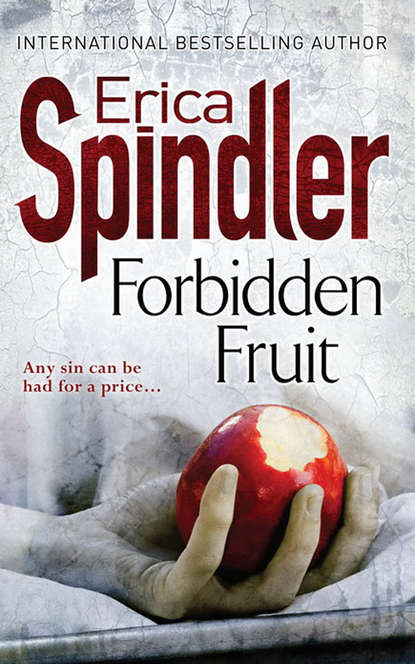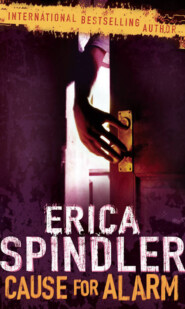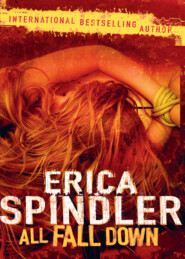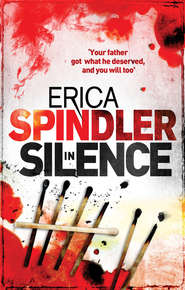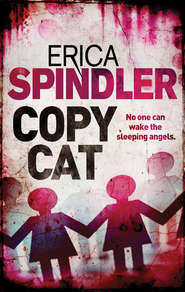По всем вопросам обращайтесь на: info@litportal.ru
(©) 2003-2024.
✖
Forbidden Fruit
Автор
Год написания книги
2018
Настройки чтения
Размер шрифта
Высота строк
Поля
The church. She could turn to the church. The priest would help her. He would understand.
And in the anonymity of the confessional, she would be safe. Her secret would be safe.
Whimpering with relief, Hope turned away from the door and moved blindly to her closet. She rifled through it, pulling out her street clothes, tugging them on as quickly as she could, fumbling in her haste. Throughout her life the Church had been her solace, her rock during times of turmoil and confusion. Surely this time would be no different. Surely the priest would know what she should do.
But what if, this time, the priest couldn’t help her? What would she do then?
Fear pumped through her, taking her breath, her ability to think, to act. She struggled to get control of her emotions; she couldn’t afford to fall apart now. If she did, The Darkness would have her.
Never. Taking a deep, steadying breath, Hope crossed to the phone and as quietly as she could, called a cab. That done, she collected her purse and tiptoed to the door. Luck was on her side—the nurses’ station was still empty. Smiling to herself, she ducked out of the room and went quickly to the elevator. She didn’t want Philip alerted to the fact she was leaving the hospital. He would try to stop her; the hospital staff would try to stop her. None of them understood.
As she had hoped, the elevator was unoccupied. It whisked her to the lobby; she stepped out and started for the double glass doors directly ahead. A security guard stood at the front desk, flirting with the receptionist. Neither spared her more than a glance.
Hope pushed through the doors and stepped out into the humid New Orleans night. Air, thick with moisture, enveloped her like a womb. She breathed deeply, grateful, so grateful, to be free.
She moved away from the building, out of its circle of light, and the dark swallowed her. Moonlight glistened on the wet pavement; tree branches, their leaves heavy with a recent rain, hung low, their loaded leaves splattering her as she walked beneath them.
A streetcar rumbled past; a youth darted across the avenue, shouting a greeting to another passing in a car. From the canopy of oak leaves above her came the sound of some small animal scurrying for deeper cover.
The cab drew to the curb. Hope slid inside. “St. Louis Cathedral,” she instructed, then settled against the worn seat. In hopes of catching the faithful either in anticipation of their sin or in repentance of it, the Jackson Square cathedral heard confessions into the night. She had always thought it ironic that New Orleans’s oldest, and to her mind, most awe-inspiring cathedral stood sentinel at the very heart of debauchery.
Hope clenched her hands in her lap. The cab smelled stale, like old cigarettes and mildew. The driver said little; his silence saved her having to rebuff him. She turned her face to the window and watched as the grand residences of uptown gave way to the high rises of downtown, then to the old-world architecture of the Vieux Carré, or French Quarter.
Within minutes, the driver drew the cab to a stop beside the cathedral. Hope asked him to wait, then stepped out into the night. She lifted her gaze to the church’s mighty spire, feeling a measure of relief already. St. Louis Cathedral stood watch over Jackson Square, just as a chaperon would over a pair of anxious teenagers, just as the Catholic church had always stood watch over the eternal souls of the faithful. Rebuilt twice from ashes and once from the rubble wrought by a hurricane, its rigid lines provided a stark contrast to the whimsical ironwork of the buildings adjacent to it. Hope had always thought of this church as a type of anchor, its rigidity balancing and securing the lives of the laissez bon temps roullé Creoles who had once inhabited the Vieux Carré.
Taking a deep breath, she hurried toward the church’s welcoming portal, her heels clicking on the cobblestone walkway. From the Mississippi River, located just beyond the square to the east, came the lonely call of a barge; from nearby Bourbon Street, she caught the strains of Dixieland jazz and raucous laughter.
As she entered the church, those sounds faded, leaving a silence that echoed, that reassured. A sense of calm, a feeling of serenity flowed over Hope. Her agitation, the desperation that had held her in its grip for days now, melted away. Here, The Darkness couldn’t touch her. Here, nestled in the arms of the church, she would find her answers.
A marble cistern stood inside the entrance. Hope dipped her fingers into the holy water. She crossed herself, and started for the confessionals that flanked each side of the sanctuary at the front.
She slipped into the first she came to and drew the curtain closed behind her. She knelt, facing the interior wall, and bowed her head. A moment later, the panel slid open. Obscured by a screen, she could make out the priest’s form, but not his features. Just as he could not make out hers.
“Bless me, Father, for I have sinned. It’s been two weeks since my last confession.”
“What sins do you have to confess, my child?”
Hope twisted her fingers together, her heart thundering so hard it hurt to breathe. “Father, I…I’ve come to you under false pretenses. I’ve come not to confess my sins, but to seek your counsel. You see, I—” Her throat closed over the words, and she fought to clear it, fear and despair rising in her again, threatening to swallow her.
“I have nowhere else to turn, Father. No one to turn to. If you can’t help me, I don’t know what I’ll do. I’ll be lost.” Hope brought her hands to her face and wept into them. “Please, Father. Please help me.”
“Calm yourself, child. Of course I’ll help you. Tell me what’s troubling you.”
Hope shuddered. “The women of my family are evil and wanton, Father. They’re sinners, they sell themselves, their bodies. It’s always been so in my family, we are cursed women.”
She swiped at the tears on her cheeks. “I escaped, but now I fear for my baby daughter’s eternal soul. I fear she, too, will grow up evil and wanton. I see The Darkness in her, Father, and I’m so afraid.”
For a moment, the priest said nothing. Then he began to speak, softly but with a strength and surety that filled Hope with calm.
“We are all in possession of the darkness, child. Eve offered Adam the apple, he took the Forbidden Fruit and Original Sin was born. Each of us come into the world tainted by that act of Original Sin. We are all unclean. But God sent His only son to die for us, for our sin. Christ is our promise of salvation.”
The priest shifted, Hope heard the rustle of his robes and the click of his rosary beads. “You must help your daughter. You must show her the right path. You must teach her to fight the Serpent.”
“But how, Father?” Hope leaned toward the partition. “How can I help her?”
“You’re her mother. You have the power to mold this child into a woman of high moral character. Only you. You show her the way, teach her right from wrong, holy from unclean. God has sent you this child as a test. Of your strength and of your faith. This child can be your glory or your defeat.”
Hope’s heart began to thunder, and suddenly her path—her purpose—was clear. It wasn’t the Lord who was testing her, it was The Darkness.
She curved her hands into fists, so tightly her nails dug into her palms. Let The Darkness test her, let it taunt and mock her. She wouldn’t lose to it; she wouldn’t let it have her daughter. She would stamp the Bad Seed out of her child, just as she had worked to stamp it out of herself.
This child could be her glory or her defeat.
Glory, she thought, determination rising like a tidal wave inside her. This child would be her Glory.
Part 2 Santos
Chapter 4
New Orleans, Louisiana 1979
Living in New Orleans’s French Quarter suited fifteenyear-old Victor Santos just fine. No place else he had lived was quite like it. Day and night, the Quarter vibrated with energy and excitement; he never lacked for something to do or someone to hang out with. He liked the sounds and the smells, he liked the old buildings whose cracked plaster walls were always damp, he liked the lush, hidden courtyards and the fanciful iron balconies.
But most of all, Santos—called that by everyone but his mother—liked the people. The Quarter was home to all ages, persuasions and colors, home to the good, the bad and the ugly. Even the crush who flocked to Bourbon Street at night—most of them dedicated party animals, the rest curiosity seekers come to ogle the outrageous—fascinated him.
His school counselors were always telling his mom that the Quarter was no place to raise a kid because of the bad element. Of course, they would lump her into that category, too, if they knew she was an exotic dancer and not the waitress she had told them she was.
As far as Santos was concerned, those counselors were a bunch of full-of-crap know-it-alls. As far as he was concerned, hookers, junkies and runaways had a lot more heart than no-good sons-of-bitches like his daddy. No, from what he had seen of life, the folks who’d had nothing but hard times and hurts didn’t have room inside them for hate.
Santos crossed Bourbon Street and shouted a greeting to Bubba, the guy who worked the door of Club 69, the place his mother danced nights.
“Hey, Santos,” the burly bouncer called back. “You got any smokes? I’m out.”
Santos laughed and lifted his hands, empty palms up. “Gave it up, man. Haven’t you heard? Those things’ll kill you.”
The man flipped Santos a friendly bird, then turned his attention to a couple of tourists who had stopped outside the club and were craning their necks to get a peek at the show.
Victor continued down Bourbon, then cut across to St. Peter, hoping to shave a few minutes off his walk. He had promised his mother he would pick up a couple shrimp po’boys on his way home.
His mouth started to water at the thought of the big, sloppy sandwiches, and he stepped up his pace, though not too much. August in New Orleans didn’t lend itself to hurrying. Although the sun had begun its descent more than an hour ago, the sidewalk was still hot enough to fry an egg. Heat emanated from the concrete in sweltering waves, and the air, heavy with the ninety-plus-percent humidity, could suffocate the overzealous. Just last week, a touristbuggy horse had fallen over dead in the street, a victim of August in New Orleans.
“Hey, Santos, baby,” a woman said from behind him. “Where you goin’ in such a hurry?”
He stopped, looked over his shoulder and smiled. “Hey, Sugar. Going to the Central Grocery, then home. Mom’s waiting.” Until about six months ago, Sugar had danced at the club with his mother. She’d been forced to start working the streets full-time when her man had taken off, leaving her and their three kids.
“Your mama always did like them sandwiches. Bet you do, too, a big boy like yourself.” She laughed and patted his cheek. “You tell your mama I said hello. You tell her Brown Sugar’s doin’ okay.”
“I will. She’ll be glad to hear it.”





